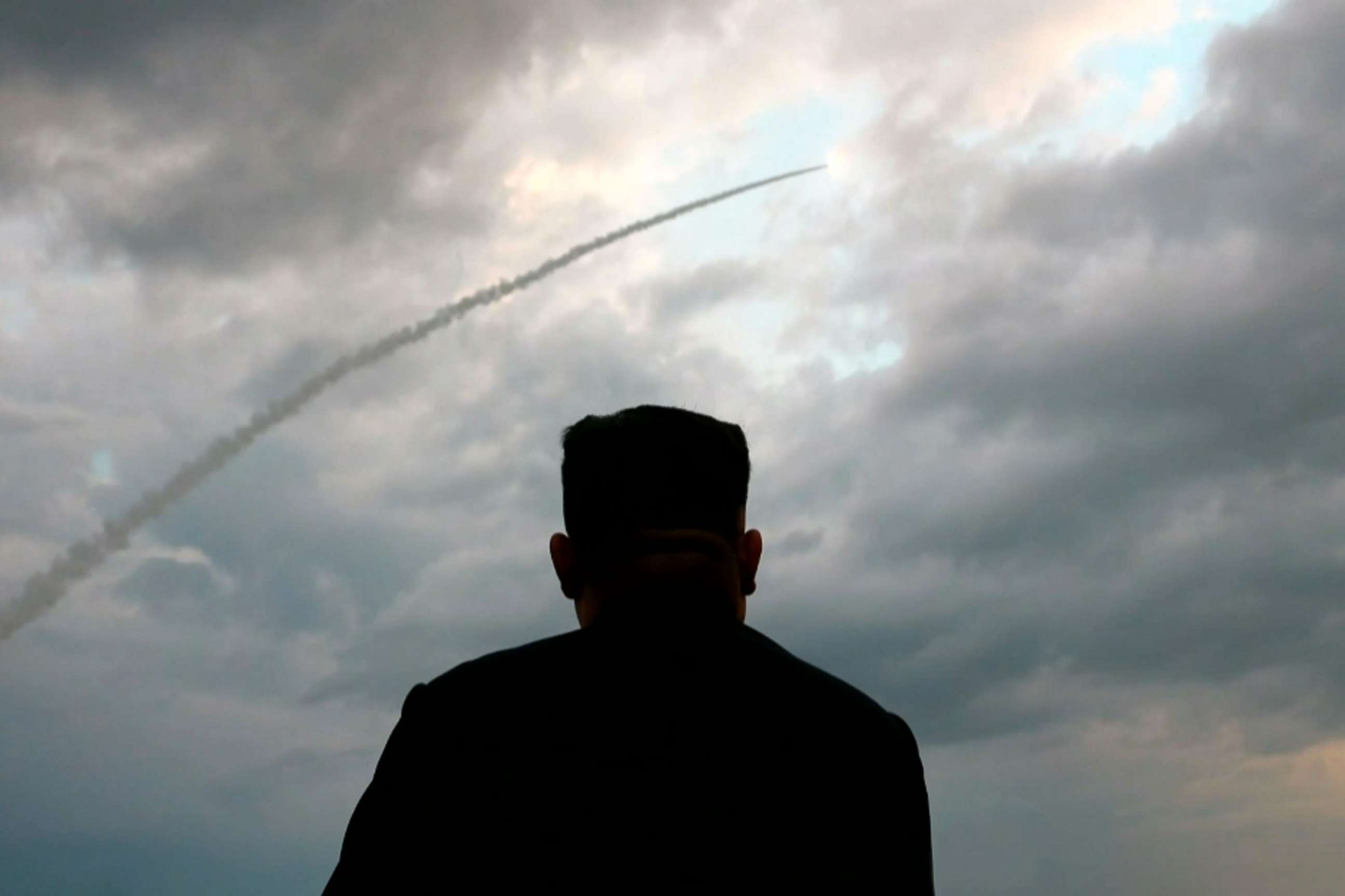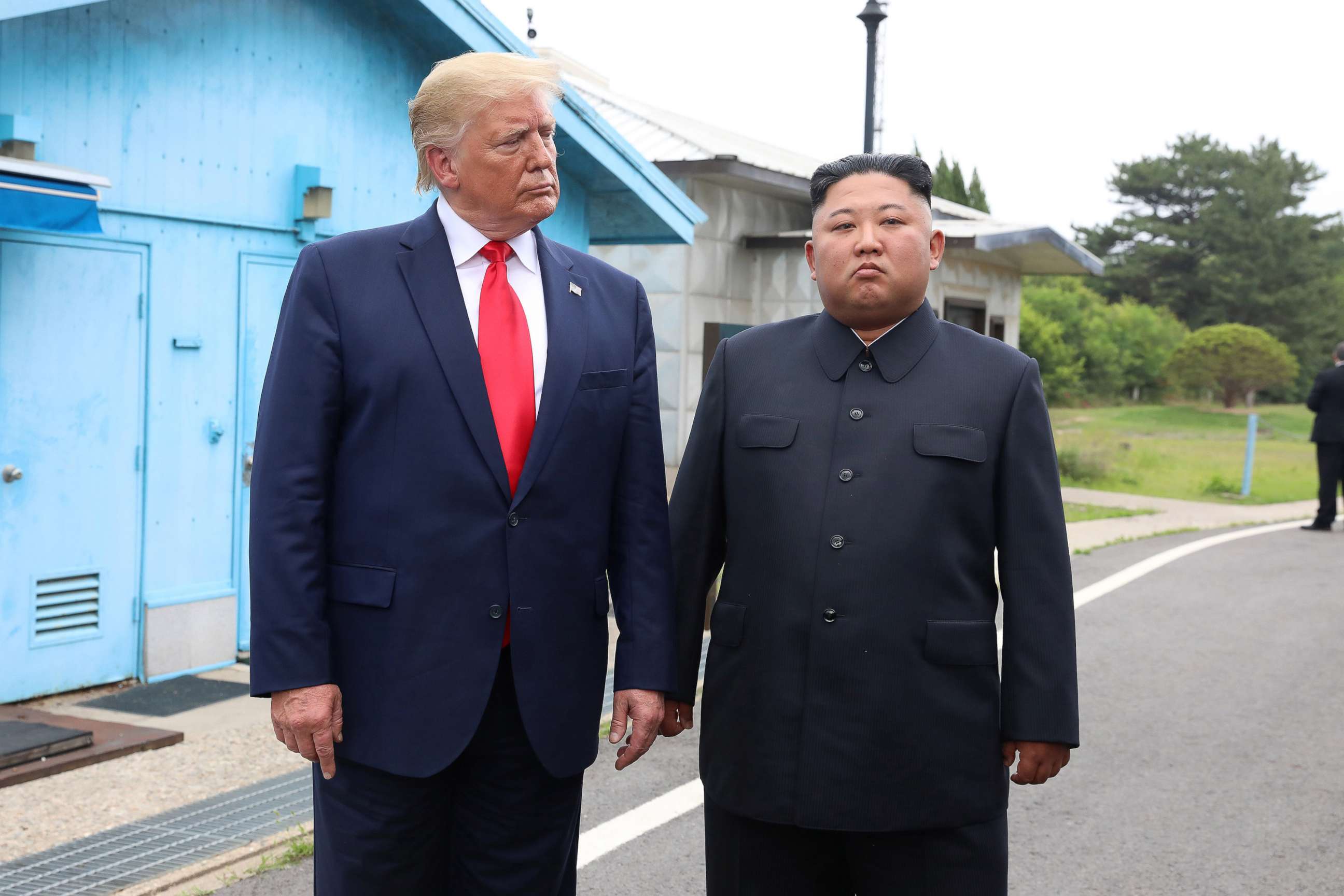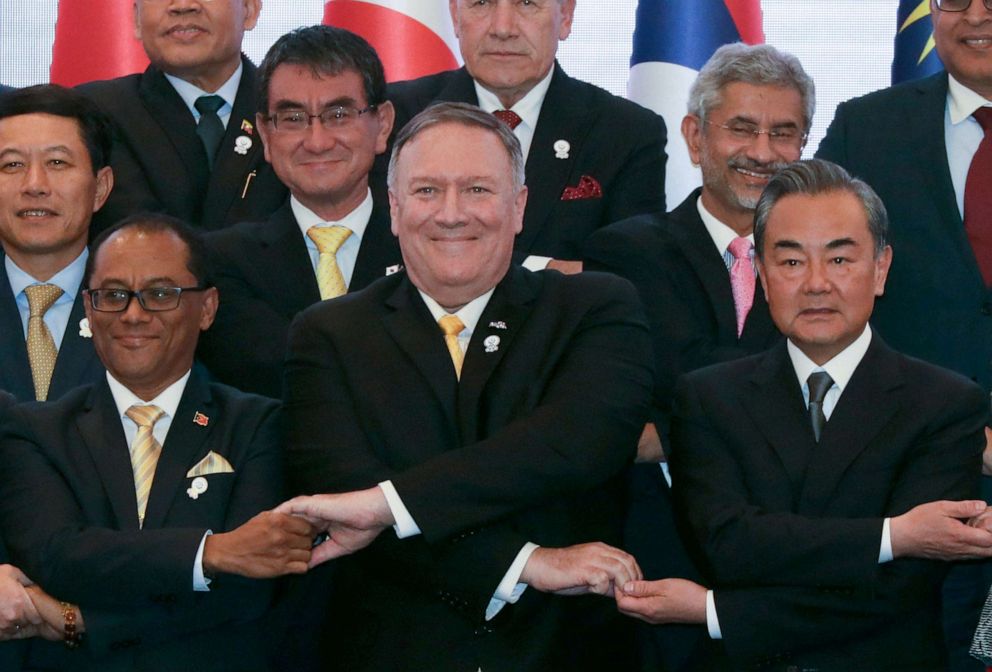Trump again downplays North Korean missile launches even as senior official calls them 'huge mistake'
The U.S. is still awaiting talks on dismantling the regime's nuclear weapons.
President Donald Trump on Friday again downplayed a recent spate of ballistic missile launches by North Korea, tweeting that Kim Jong Un "will do the right thing because he is far too smart not to, and he does not want to disappoint his friend, President Trump!"
His dismissal via Twitter came just hours after a senior State Department official told reporters that the launches and a string of other recent behavior by Kim's regime were "a huge mistake."
It's a sign of the divides within the U.S. on how to respond to North Korea's tough stance since Trump and Kim's second summit in Hanoi, Vietnam, ended without an agreement, but it may also be a strategy of good cop, bad cop.

In the early morning hours Friday in North Korea, the regime fired what appeared to be short-range ballistic missiles, similar to those launched on Wednesday, according to a U.S. official and South Korean officials. It was the third time in a little more than a week that the North had launched such a barrage.
Analysts warned that the launches are critical to the regime enhancing its missile capability, including by making them harder to detect. They also violate United Nations Security Council resolutions, which require North Korea to stop ballistic missile testing and halt "all activities related to its ballistic missile program."
After months of sporadic short-range missile testing since the Hanoi meeting, Trump finally acknowledged these tests constitute a U.N. violation, but he said it didn't matter.
"These missiles tests are not a violation of our signed Singapore agreement, nor was there discussion of short range missiles when we shook hands," he tweeted. "There may be a United Nations violation, but Chairman Kim does not want to disappoint me with a violation of trust, there is far too much for North Korea to gain - the potential as a Country, under Kim Jong Un’s leadership, is unlimited."

The U.N. Security Council met Thursday behind closed doors to discuss the recent launches. The meeting was held at the request of the United Kingdom, France, and Germany, who condemned the launches as clear violations.
"International sanctions must remain in place and be fully enforced until North Korea’s nuclear and ballistic missile programs are dismantled. It is vital that the Security Council shows unity in upholding its resolutions," British Ambassador Karen Pierce said alongside her French and German counterparts.
The U.S. mission did not release a statement.
But a senior State Department official traveling with Secretary of State Mike Pompeo at a major Asian summit in Thailand called the launches "provocations" and said they "are unwelcome in this environment."
The missile tests in combination with North Korea's "failure to follow through on their own commitments to engage in diplomacy were noticed by virtually every country attending this summit meeting," they added. "There is a common view that this is a huge mistake and a self-inflicted damage on their own part."

Pompeo had hoped to meet his North Korean counterpart Ri Yong Ho or other officials while in Bangkok, but Pyongyang did not send a delegation -- and "missed this opportunity. But it probably hurts their own interests," the senior official said.
The remarks were a sharp contrast to Trump and some of the strongest frustration expressed by the American side since Hanoi.
To many, Trump's embrace of Kim -- a ruthless young dictator who has purged senior leaders, including family members, and oversees a prison state that constricts the North Korean people, including through extrajudicial killings and gulags -- is unseemly at best, immoral or dangerous at worst. But it seems like Trump's warm words for the North Korean leader and his administration's quiet condemnations of Kim' actions are meant to send a signal that the U.S. wants to engage and will protect Kim -- if he does what the U.S. asks and gives up his nuclear weapons program.
The two sides expect working-level talks to do just that to happen "in the not too distant future," according to the senior official. They are in "regular communication" and working on establishing a time and location to meet, the official added.
Kim had agreed to such talks when he and Trump met at the Demilitarized Zone between North and South at the end of June, according to Pompeo. But in the weeks since, the only meeting the two sides have had was so the White House could hand deliver official photographs of that meeting from Trump to Kim, according to a senior administration official.




